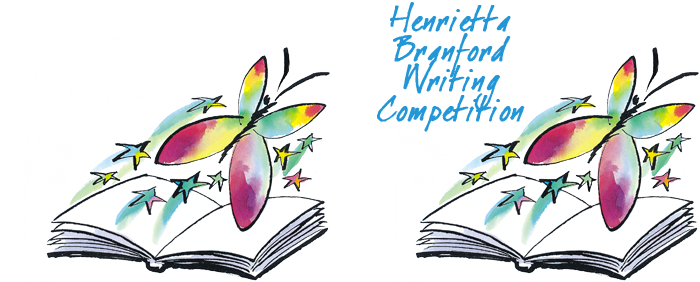Q&A with authors Humza Arshad and Henry White
 Where did the idea for Little Badman and the Invasion of the Killer Aunties come from?
Where did the idea for Little Badman and the Invasion of the Killer Aunties come from?
We’ve been working together on and off for six or seven years and aunties have always been something of a fixture. They crop up regularly in Humza’s observational comedy about life as a British Pakistani Muslim, and in his YouTube series, Diary of a Badman, were often depicted as a comic threat – usually pressuring him to marry before he was ready.
So for Little Badman, the idea was to mix some of the original auntie traits – over feeding loved ones, travelling in auntie gangs, involving themselves in the affairs of other family members –and combine these with a farfetched, exciting, existential threat. Alien bodysnatchers was the perfect answer, as it let us create a huge and exciting adventure, while ultimately proving that the real aunties were entirely blameless after all.
You created the book together – how did your writing partnership work?
We began working together after discovering that we shared a significant overlap in what made us laugh, the pop-culture we enjoyed, and how we worked creatively. Humza had spent years making films online and had a huge backlog of observational comedy from which we were able to draw inspiration. Henry had been scriptwriting professionally for over a decade at that point, including more recent work developing programmes and fiction aimed at a young audience. We were therefore able to comfortably combine our different skill sets and tackle a larger writing project than either of us had ever embarked on: two 60,000 word novels. Writing in Badman’s voice is something we’re both very comfortable with, so whoever was driving things at any given time, we felt able to remain consistent and authentic.
What is the most demanding thing about writing for a young audience?
It’s probably that balance between complexity and over-simplification. We both feel strongly that one mustn’t dumb down just because readers are young. We always try to write what makes us laugh, to create a story we’d have enjoyed to read as kids. If our readers have questions about the meaning of certain words or concepts, that’s an opportunity to learn. If you’re suitably invested in the story and its characters then you’re going to feel motivated to fill in any blanks you might have. Of course it’s a balancing act, as you certainly don’t want to be out of reach or alienating. Somewhere in the middle there’s a sweet spot where kids enjoy themselves while remaining challenged.
What was the best piece of advice your editors gave you?
Very early on, one of our editors pointed out that our gang of three boys was a missed opportunity. Thankfully, we weren’t too far into the process, and a quick rewrite introduced one of the series’ most important additions: Wendy Wang. We’re new to this and almost missed something so important here. Our editors, having more experience than us in such matters, have been crucial to the books reaching their potential.
What advice would you give to debut authors who want to write comedy?
Write what makes you laugh. Sure, if it’s a book for children, you’ll have to avoid certain subjects and keep clear of profanity, but that should in no way impact your ability to write what would make you laugh out loud. Don’t patronise, don’t dumb down, don’t rely on toilet humour for cheap jokes because you think that’s all the audience can handle (though nor should you feel you can’t go there when it’s the right gag for the scene). Be funny, be honest, show some heart. And have fun along the way – because if you’re enjoying it, there’s a much better chance your reader will too.
Q&A with editor Sharan Matharu
 What most excited you about the manuscript for Little Badman and the Invasion of the Killer Aunties when you first read it?
What most excited you about the manuscript for Little Badman and the Invasion of the Killer Aunties when you first read it?
I loved reading about a South Asian main character who wasn’t struggling because of their race or religion. Little Badman wasn’t just hilarious and full of adventure, but it also effortlessly celebrated British-Pakistani cultural norms and made them into a source of strength.
What were the aspects that you worked on most with Humza and Henry when editing it with them?
Holly Harris did an amazing job on the major editorial points, pointing Humza and Henry in the right direction with character development and letting their creativity flow.
What’s your favourite scene or funny moment in the book and why?
It was definitely when Humza and Umer are filming their rap video in the toilets of their primary school, the scene still makes me laugh every time I think about it!
What would you say is the hardest thing for debut authors when working on their manuscripts?
The hardest thing can often be sewing the existing character dynamics and plot strands into a seamless reading experience. Most of the time every aspect of the story is there, it just needs a bit of finessing to get it to stitch together perfectly.
Is there a single piece of advice you would give to would-be children’s authors?
I’m not sure there is a one-rule-fits-all so I’d just say be true to your own vision, voice and writing style.
Little Badman and the Invasion of the Killer Aunties is published by Puffin, 978-0241340608, £6.99 pbk.



